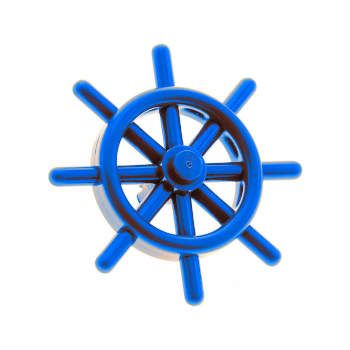-
Declaratively create a kubernetes pod using kubectl (for docker administrators)
2 min read

The first thing one want to try once we have access to a Kubernetes cluster is to run a pod in it. Let's try to create our first pod on kubernetes, declaratively: meaning that we will be writing a manifest to do it.
31/03/2021
Read more... -
tcpdump: filter DNS queries
2 min read
When a DNS change is involved in an ongoing issue, we need to be sure when we use, for example curl, whether we are hitting the new or the old resource. Is that DNS record still cached locally? One of the best ways of checking this is by sniffing the DNS traffic using tcpdump
30/03/2021
Read more... -
Imperatively create a kubernetes pod using kubectl
1 min read

Just as an hello-world equivalent, first thing one want to try to start learning how to use a Kubernetes cluster is to run a pod in it. Let's try to create our first pod on kubernetes just as we would do with docker for running a container
29/03/2021
Read more... -
Helm: Get the values.yaml config template
2 min read

To configure a helm chart one of the firsts steps always is to set our customizations. To do se we will need to retrive the default values.yaml. To set the values using the --set option is not really practical and can lead to errors if we push changes forgetting to set some values
26/03/2021
Read more... -
Using helm from terraform
2 min read

When it comes into configuring a helm chart using terraform we can configure it's values in two different ways: By using set or by pushing a template with it's values. Let's take a look:
25/03/2021
Read more... -
How to get EC2 instance ID and other metadata
1 min read
On an EC2 instance we can retrieve some of it's metadata by using curl. Let's see how
24/03/2021
Read more... -
Using data sources for retrieving data from not managed resources
2 min read

Using data sources on terraform allows us to make use of information not managed by Terraform, or defined by another separate Terraform codebase. We can use it for any resource os even an entire terraform remote state
Let's dive in
23/03/2021
Read more... -
ALB Ingress: redirect traffic to HTTPS
2 min read
One of the beauties of using an ALB Ingress controller on AWS is that you can configure SSL certificates for your Ingress by just defining you want to use HTTPS
apiVersion: extensions/v1beta1 kind: Ingress metadata: annotations: kubernetes.io/ingress.class: alb alb.ingress.kubernetes.io/listen-ports: '[{"HTTP":80},{"HTTPS":443}]'But this is going to serve the same content using HTTP and HTTPS. Configuring a SSL redirect it is also pretty straightforward but involves two steps:
22/03/2021
Read more... -
How to install packages on alpine-based containers
2 min read

Whether you are running containers on Kubernetes or in docker you might need to install packages on the running containers. You will notice that most of them are based on Alpine Linux because of its small size.
Alpine Linux is a distribution based on musl and BusyBox with its own package-management system, apk-tools.
19/03/2021
Read more... -
Using the nodeSelector for selecting a kubernetes cluster partition
4 min read

On a kubernetes cluster not all nodes are expected to have the same amount of resources so we might need to schedule some pods on specific nodes due to the resources they have (for example access to a GPU) or due to the network connectivity they have (for example edge nodes). Using nodeSelector we can the scheduler how we want out pods to be scheduled
18/03/2021
Read more...